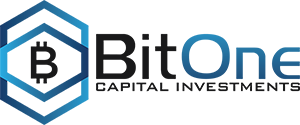Bitcoin is the first digital currency to be created. Founded in January 2009 following the housing market crash, the cryptocurrency follows the ideas published in a whitepaper by the mysterious founder Satoshi Nakamoto.
Bitcoin was created to be a peer-to-peer electronic version of cash but has evolved over the years to become a valuable asset and store of value.
Bitcoin offers users lower transaction fees compared to the traditional online payment mechanisms. It is operated by a decentralized authority. The decentralized nature makes Bitcoin more transparent than the fiat monetary system.
There are no physical bitcoins. Records of the cryptocurrency are kept on a public ledger that everyone has transparent access to. Transactions are verified by miners, who are rewarded for mining the cryptocurrency and verifying transactions on the network. Bitcoin’s emergence has led to the development of thousands of other cryptocurrencies with varying functions in the global economy.
Why do Bitcoins have value?
A currency is valuable if it has specific characteristics. Here are the features and how Bitcoin fulfills them.
Scarcity
A currency’s value is maintained through its supply. Too much money supply could lead to an increase in the prices of goods and services, eventually leading to an economic collapse. Too little supply also has economic ramifications. With Bitcoin, only 21 million bitcoins (BTCs) would ever be created, which makes it a scarce currency. The scarcity makes Bitcoin a valuable asset.
Divisibility
A valuable asset or currency has to be divisible into smaller incremental units. A currency that serves as a medium of exchange for various goods and services within an economy must have the flexibility associated with this divisibility. Bitcoin is divisible. The smallest Bitcoin unit is satoshi, and people can pay for goods or services using this small unit.
Utility
Utility is vital for a currency or asset to be valuable. People must be able to trade units of the currency for goods and services. Bitcoin is utilized in several countries as millions of merchants accept the cryptocurrency as payment for goods and services.
Transportability
A currency is valuable if it can easily be transferred between participants in an economy. Bitcoin is a digital currency that can be easily transferred amongst users. Anyone can create a Bitcoin wallet and use it to send and receive the cryptocurrency.
Durability
Valuable currencies must be durable. This is a problem faced by fiat currencies where we have physical notes and coins are distributed. With Bitcoin, everything is issued digitally, which makes it a stable currency.
Counterfeitability
A currency must be difficult to counterfeit for it to remain useful and valuable. The cryptographic security and decentralized nature of Bitcoin make it almost impossible for anyone to duplicate or counterfeit the cryptocurrency.
What’s a store of value?
The common definition of a store of value is an asset that can retain its value over time. If you buy an asset today and are convinced that its value won’t decrease over time, it is a value store. This means the asset’s value would increase in the future or remain equally valuable.
For an asset to be considered a good store of value, it must have two major characteristics:
First, it has to be durable. You can buy a doughnut today, and it has intrinsic value now since we consume it. However, storing the same doughnut for a few years makes it useless as no one would consume it after that period. However, a store of value is an asset that can stand the test of time and remain valuable in the future.
Secondly, a store of value has to be a scarce asset. Gold and other commodities are a good store of value because they are not too much in circulation. The same applies to Bitcoin. With only 21 million BTCs to ever be in existence, Bitcoin is a scarce asset.
Why Bitcoin is a store of value
Bitcoin has the features of a good store of value. The cryptocurrency is scarce, and it is durable. The Bitcoin protocol stipulates that Bitcoin’s supply will never be more than 21 million coins. It isn’t easy to create Bitcoin as it involves mining, a process where miners solve tricky cryptographic puzzles. The Bitcoin miners are rewarded with newly minted coins for their effort.
Another reason why Bitcoin is a good store of value is that it has the properties of money. Bitcoin is portable. As a digital currency, Bitcoin is easy to carry around since it doesn’t have a physical footprint. You can store millions of dollars in Bitcoin without having to walk around with a chunky wallet.
Bitcoin is easily divisible. A single Bitcoin (BTC) can be divided into 100 million units called satoshis (0.00000001 BTC). This means investors can purchase fractions of the coin, and holders controls their transactions.
Furthermore, Bitcoin is fungible. This means that the BTC units are indistinguishable. It doesn’t matter the particular Bitcoin you are holding as the coins are all the same.
Store of value: Bitcoin vs. Gold
For centuries, Gold has been the favorite and ultimate store of value. However, Bitcoin has emerged as an alternative to Gold. Nikolaos Panigirtzoglou, a strategist at JPMorgan, recently told Bloomberg that Bitcoin’s adoption is coming at Gold’s expense. Billions of dollars are leaving the gold market and entering the Bitcoin market.
What makes Bitcoin a better store of value than Gold? And will Bitcoin’s market cap catch up to that of Gold soon? Let us look at their fundamentals and see how the two assets compare.
Scarcity
Bitcoin’s supply is capped at 21 million, and we have nearly 19 million bitcoins currently in circulation. Some of these bitcoins are lost forever and cannot be traced to anyone. Thus, reducing the amount that can be traded. Gold is also a scarce asset, but Bitcoin’s limited supply gives it an edge in this department. The government doesn’t have the power to mine BTC at will, which is why some investors consider it a good store of value.
Liquidity
Bitcoin’s current market cap stands above $600 billion, while Gold has a roughly $10 trillion market cap. Bitcoin’s low market cap shows its potential to increase in value over time. If investors continue to push in funds at the current rate, Bitcoin as a store of value will continue to outperform Gold.
Transparency
In terms of transparency, Bitcoin is one of the most transparent assets in the world. The cryptocurrency is issued via an open and distributed ledger known as a blockchain. Each transaction is recorded on millions of computers globally. The records of each transaction are available to anyone.
Performance
Bitcoin’s performance over the past decade has surpassed that of Gold. Gold’s price is up by 34% over the past decade. In comparison, Bitcoin went up by nearly 500% in 2020. Bitcoin outperformed Gold massively over the last decade, and as an emerging market, it is expected to continue its massive rise in the coming decade.
Is Bitcoin the future of money?
The Deutsche Bank believes that the current monetary system is fragile and digital currencies will replace them. In their “Imagine 2030” report, Deutsche Bank estimates that over 200 million users globally would adopt digital currency by 2030. This growth is similar to that of the internet in its first two decades.
As the leading digital currency, Bitcoin would be the most widely-used digital currency in the world.
The first step to Bitcoin reaching hundreds of millions of people worldwide is by governments and regulators recognizing it as a legitimate currency. The market is already seeing this play out in the form of cryptocurrency regulation. Several countries are rolling out policies that would regulate the cryptocurrency market. Hence, legitimizing the use of Bitcoin as a store of value and a medium of exchange. The regulation of cryptocurrencies would lead to widespread adoption of Bitcoin as more people would leverage its legitimate status to start using it.
Institutional investors have mostly stayed away because of the regulatory uncertainty surrounding Bitcoin. However, regulating the market means billions of dollars would be pumped into the cryptocurrency by institutional investors.
Already, mobile payment platforms like WeChat Pay, AliPay, and Paypal are phasing out the use of plastic cards. Bitcoin offers even better advantages than those payment platforms. With Bitcoin, users enjoy faster transactions, transparency, lower transaction fees, and more.
All these features are making Bitcoin more popular. According to a survey, roughly 18% of students based in the United States hold Bitcoin or another form of cryptocurrencies. Once the regulatory challenges have been overcome, Bitcoin will become a leader in the global monetary system.
Final Thoughts
Bitcoin is the leading and most valuable digital currency in the world. Although it is touted as a currency, its performance over the years suggests it is more of an asset than a currency. Its price volatility over the years has seen it outperform Gold by thousands of percentage. Bitcoin’s market cap is small compared to Gold, implying that it has massive room for growth over the next few decades. Overall, Bitcoin is changing the global financial system, and it is ushering in a new dawn in the global economy.

